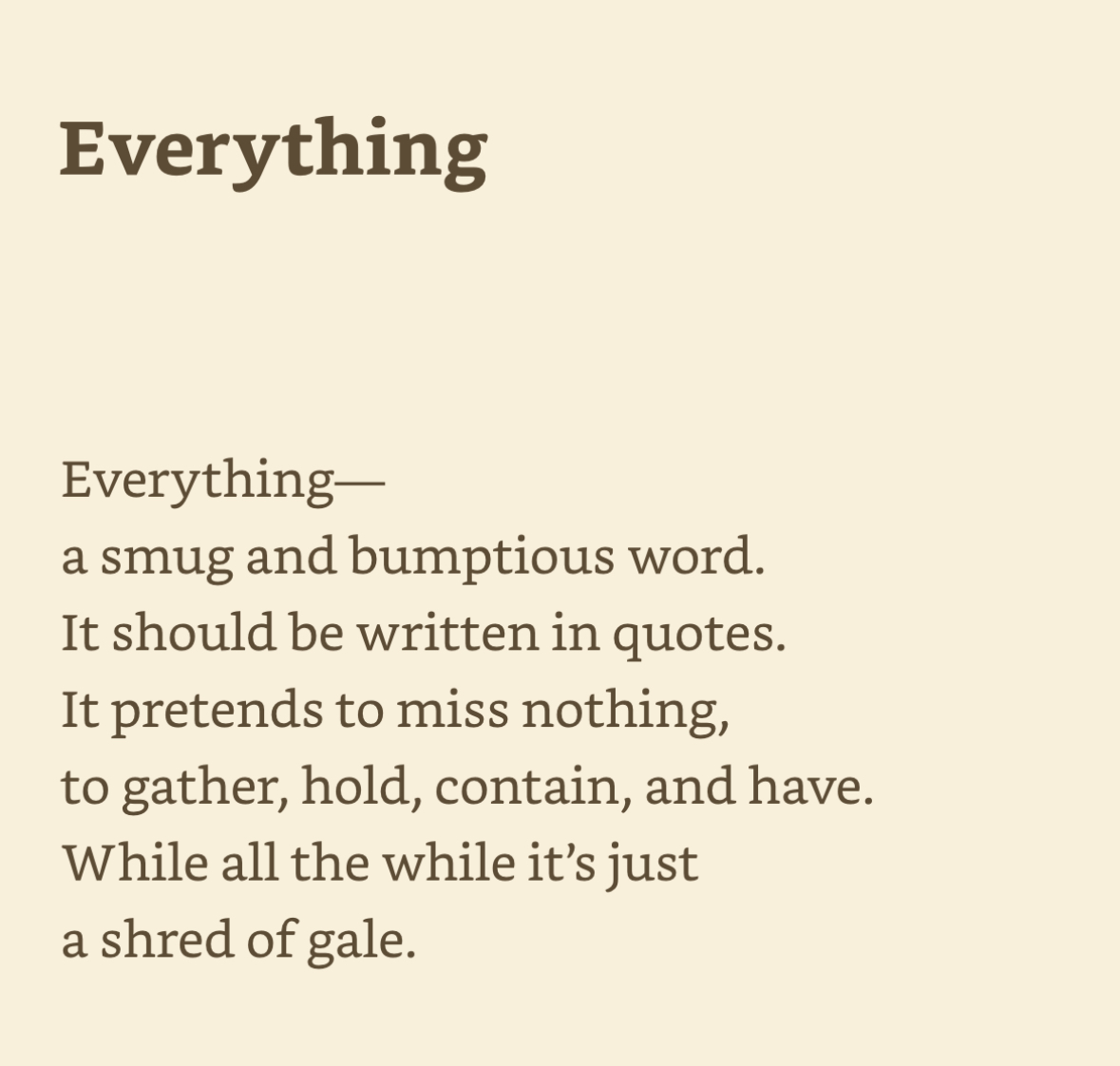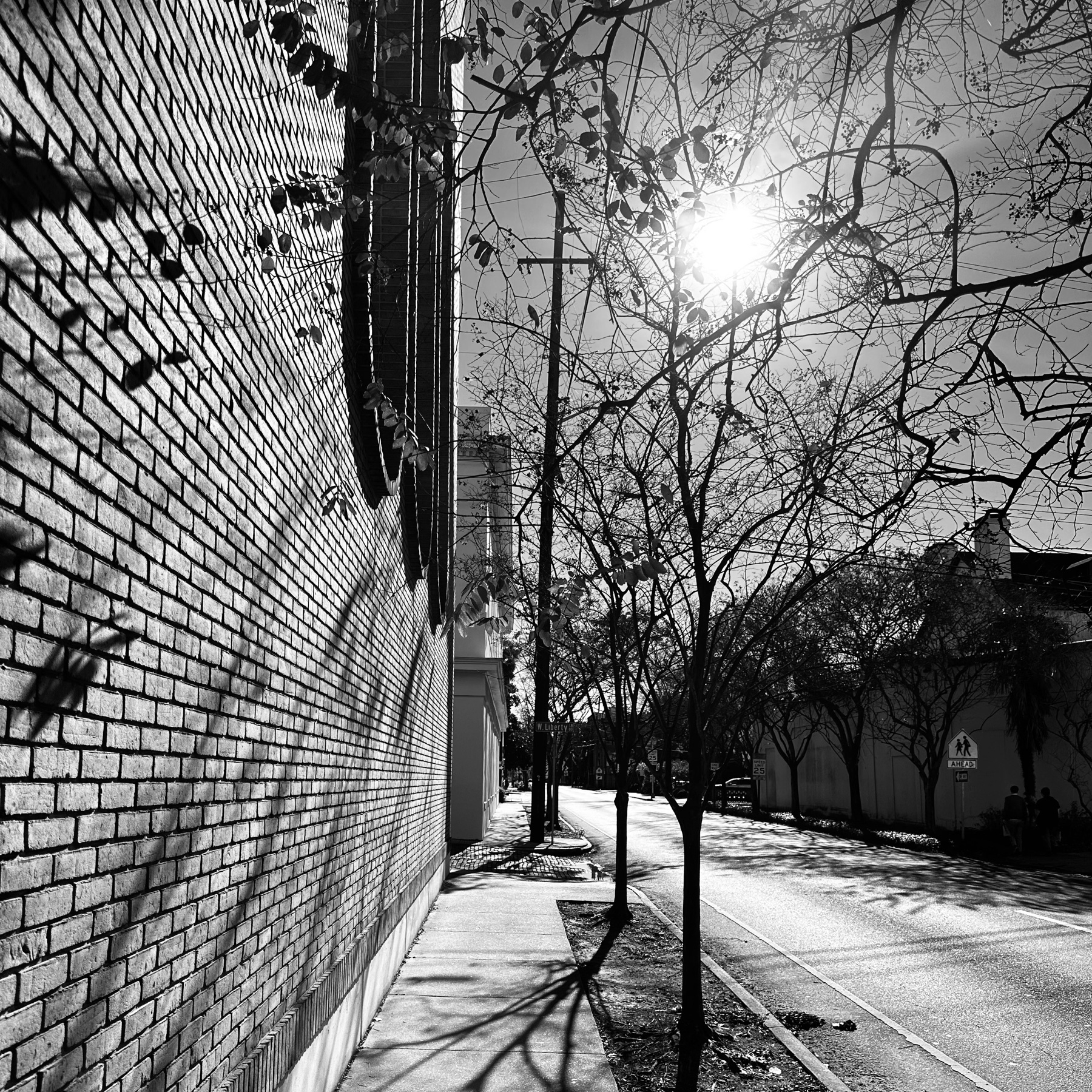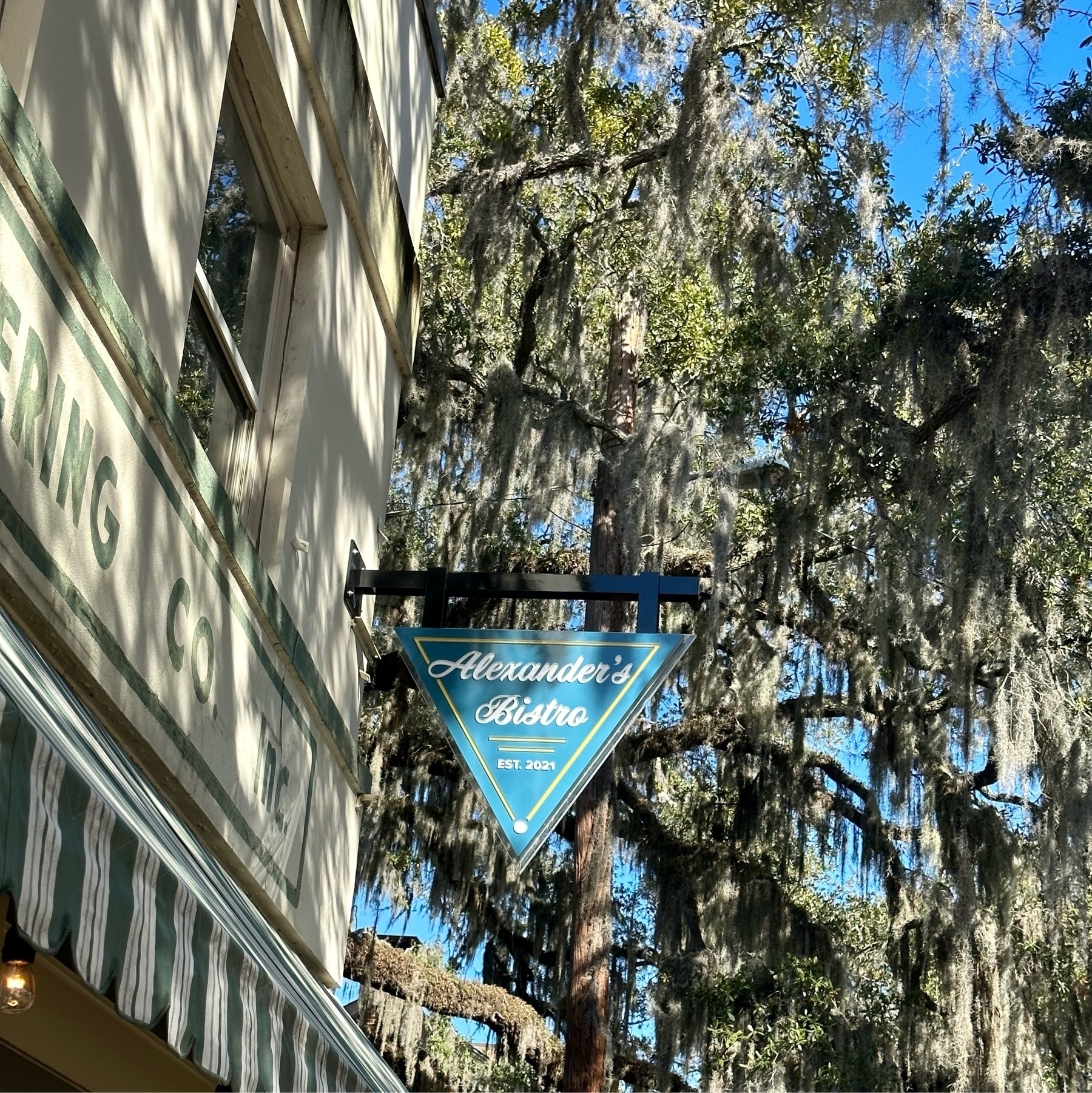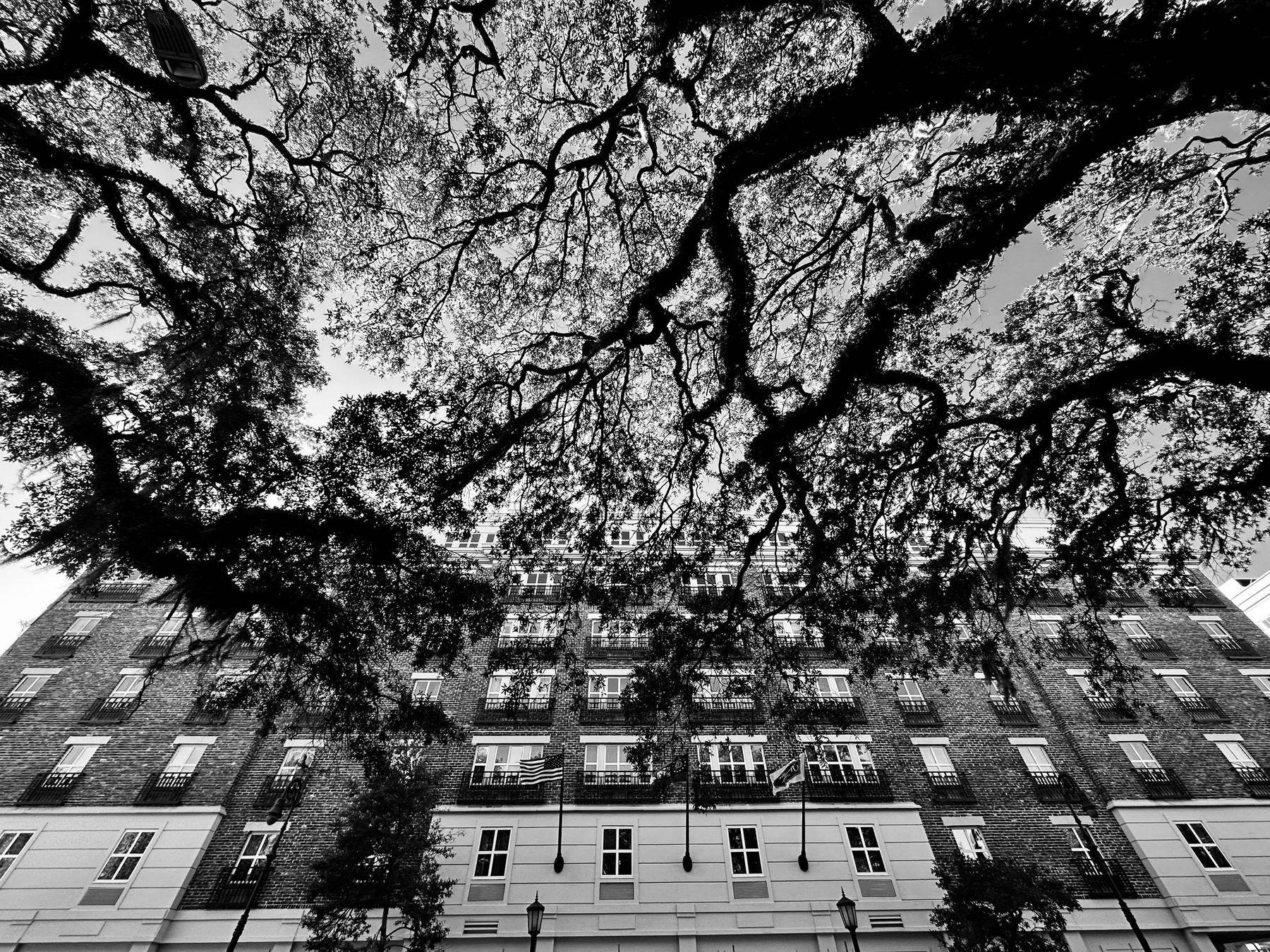Happy Place

Happy Place

Talmadge Memorial Bridge, over the Marsh Island Channel

Wisława Szymborska:


Finished reading (2009): The Winter Sun: Notes on a Vocation by Fanny Howe 📚
A thoughtfull work of journalistic essays. Stunning at times; always mystifying.
Reflecting on a retreat with the Dalai Lama:
“The buzz of the helicopter reminded us all of the war outside the walls of the monastery. And as usual, I was distressed by the assumption that the only way to come face to face with the truth is by fasting, meditating, practicing compassion and altruism, and entering a cell. Isn’t it possible that those are conscious disciplines for a few people that most others suffer in the course of an ordinary day: being hungry, getting high, crying out to God, being lonely, fair, generous, and full of pity for others?”
South and sunny on Whitaker

E. 46th and Bull

Driessen Beach, Hilton Head Island

Dessert for breakfast at Alexander’s Bistro


E. Bay St.

Enjoying a medium-roast gift from my Ukrainian friend
